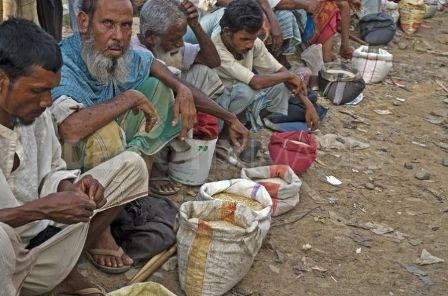The global health crisis of diabetes has taken a grave turn in Pakistan, as the country grapples with an astonishing diabetes prevalence rate of 30.8% among individuals aged 20 to 79. This revelation has sounded an urgent alarm, highlighting the need for immediate and widespread efforts to tackle this growing epidemic.
The statistics shared by the World of Statistics on its official X handle paint a dire picture, placing Pakistan at the top of the list in terms of diabetes prevalence. The implications of this staggering figure are far-reaching, not only affecting the healthcare system but also the overall socio-economic fabric of the nation.
The major health hazards associated with diabetes, which is characterised by high blood sugar levels, include heart disease, stroke, kidney failure, and blindness. The information underlines the pressing necessity for all-encompassing actions to solve the worsening health problem.
Kuwait follows Pakistan with a prevalence rate of 24.9%, underscoring the widespread nature of the problem in the region. Other countries like Egypt, Qatar, Malaysia, and Saudi Arabia also report significantly high diabetes prevalence rates, highlighting a shared concern across the Middle East.
The factors contributing to the alarming diabetes prevalence rates are multifaceted. Sedentary lifestyles, poor dietary habits, genetic predisposition, and lack of awareness about diabetes management play crucial roles. Furthermore, limited access to quality healthcare services and screening exacerbates the issue.
Experts stress the necessity of immediate action to curb this epidemic. Preventive strategies must include widespread public awareness campaigns promoting healthier lifestyles, emphasizing physical activity, and adopting balanced diets. Equally important is the need for early detection through regular screenings and access to medical interventions.
The implications of the high diabetes prevalence rates are not limited to individual health alone. The burden on healthcare infrastructure and resources is substantial, straining the country’s healthcare system. This poses additional challenges for a nation already navigating various health and socio-economic issues.
Addressing the diabetes crisis requires a multi-faceted approach involving collaboration among the government, healthcare organizations, communities, and individuals. Investing in healthcare infrastructure, training healthcare professionals, and providing affordable medications are essential steps toward effective diabetes management.
While Pakistan faces an uphill battle in curbing diabetes prevalence, the importance of awareness and proactive efforts cannot be overstated. Immediate interventions are necessary to prevent this epidemic from worsening and negatively impacting the nation’s overall health and well-being.
The data serves as a stark reminder that diabetes is not just a personal health issue but a collective challenge that requires collective action. The urgency to prioritize preventive measures, invest in healthcare resources, and educate the public about diabetes management cannot be underestimated. As Pakistan navigates this crisis, swift and decisive action is paramount to safeguarding the nation’s health and future.



















































